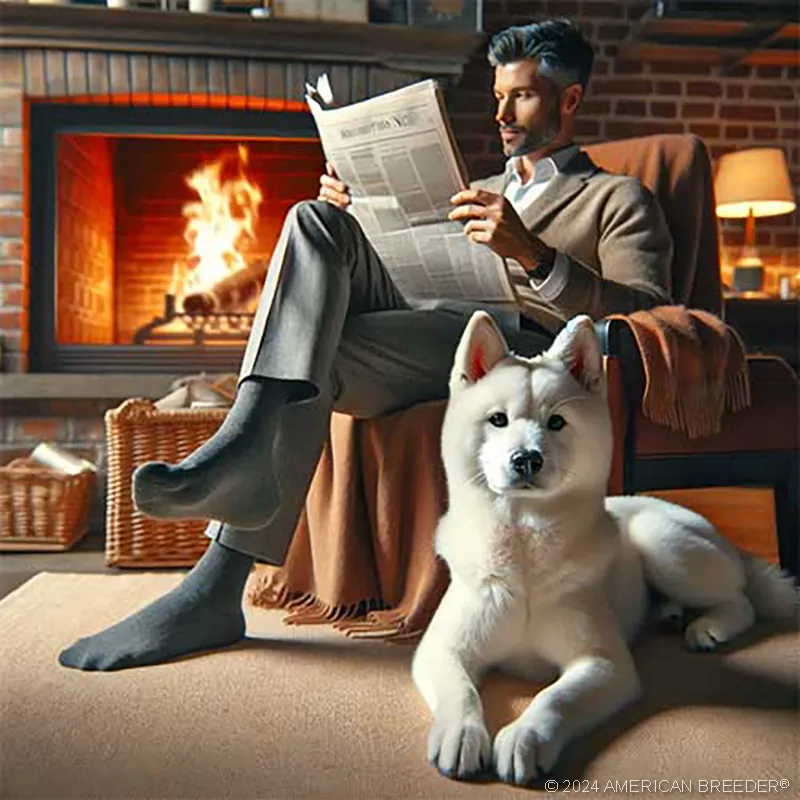Tails of Tradition: Discovering the Kishu Ken's Remarkable Legacy
In the heart of Japan's rich history, a remarkable canine companion emerges—the Kishu Ken Dog. Renowned for their elegance, loyalty, and ancestral ties, Kishu Kens stand as a living testament to centuries of selective breeding. With their striking appearance and unwavering devotion, they capture the imagination of dog lovers worldwide. This comprehensive guide embarks on a journey to unravel the captivating story of the Kishu Ken—a journey that delves deep into their origins, unique characteristics, temperament, health, and the rewarding experience of sharing life with this remarkable breed.
The Enigmatic Origins of the Kishu Ken
In the mist-shrouded mountains of Japan's Kishu region, the roots of the Kishu Ken run deep. Centuries ago, these dogs were bred for their hunting prowess, playing a vital role in tracking and holding down game. Their name, "Kishu," pays homage to their place of origin. These ancient canines bear the legacy of their samurai and hunter companions, a legacy reflected in their dignified demeanor and independent spirit. Tracing their lineage to the Japanese Spitz type, the Kishu Ken's history is interwoven with Japan's cultural fabric.
A Glimpse into the Kishu Ken's Appearance
The Kishu Ken's appearance is a harmonious fusion of elegance and strength. Their medium-sized frame exudes balance and proportion, portraying an image of poise and agility. The coat, ranging from white to sesame or red, encases their form, exhibiting a weather-resistant double layer that offers protection in various terrains. One cannot help but be drawn to their piercing almond-shaped eyes that mirror their intelligence and alertness. Their erect, triangular ears stand as sentinels, capturing every nuance of sound.
The Kishu Ken's temperament is a study in contrasts—steadfast loyalty coupled with a touch of independence. Their loyalty to their family is unwavering, making them fierce protectors and devoted companions. However, their independent streak is a nod to their hunting heritage, making early socialization and consistent training imperative. Their reserved nature around strangers adds to their air of mystery, but once a bond is formed, their affectionate side shines brightly.
Nurturing Their Well-Being
A Kishu Ken's well-being is a testament to responsible ownership. Their health and longevity are influenced by genetics, care, and nutrition. Regular veterinary visits, a balanced diet, and adequate exercise are pillars of their well-being. Their coat, whether short or long, requires grooming tailored to its type to maintain its natural beauty. Engaging them in physical and mental activities ensures a content and well-rounded companion.
Chapter 6: Challenges and Joys of Kishu Ken Ownership
Owning a Kishu Ken is a journey laden with rewards and challenges. Their strong wills necessitate consistent and patient training, embracing positive reinforcement methods to channel their intelligence. Their instinctual prey drive may pose challenges when cohabitating with smaller pets. Yet, the joys of their unwavering loyalty, keen intelligence, and endearing quirks outweigh the trials, creating a unique bond that enriches lives.
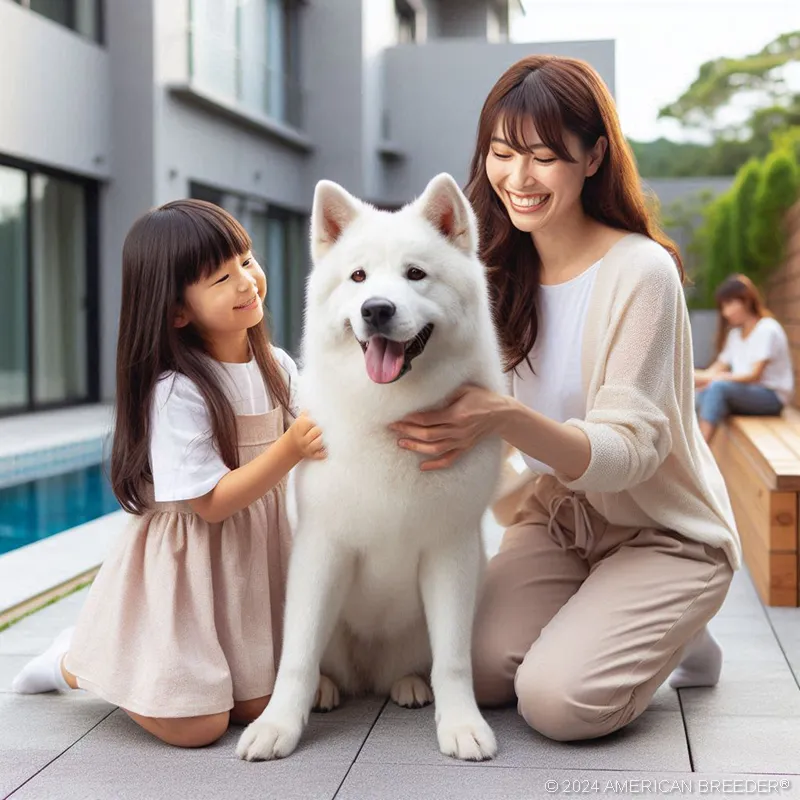 Beyond the Basics: Specialized Training and Enrichment
Beyond the Basics: Specialized Training and Enrichment
While Kishu Kens thrive on basic obedience training, they also excel in specialized roles. Canine sports, agility, and even therapy work tap into their intelligence and versatility. Their active minds require constant stimulation; interactive toys, puzzles, and scent games enrich their lives, preventing boredom and fostering mental acuity.
The Kishu Ken in Modern Society
The Kishu Ken's presence transcends time, impacting various aspects of modern society. Their roles extend beyond companionship, with therapy and service work showcasing their adaptability and empathy. In literature, art, and cultural traditions, they continue to inspire and captivate. Their steadfastness and unique character leave an indelible mark on the hearts of those fortunate enough to know them.
Advocating for Ethical Ownership
As a Kishu Ken enthusiast, you're part of a community committed to ethical ownership and responsible breeding practices. Sharing accurate information, debunking myths, and supporting ethical breeders contribute to the breed's well-being. Your voice resonates in promoting a brighter future for Kishu Kens and ensures their legacy remains intact for generations to come.
A Lifelong Bond
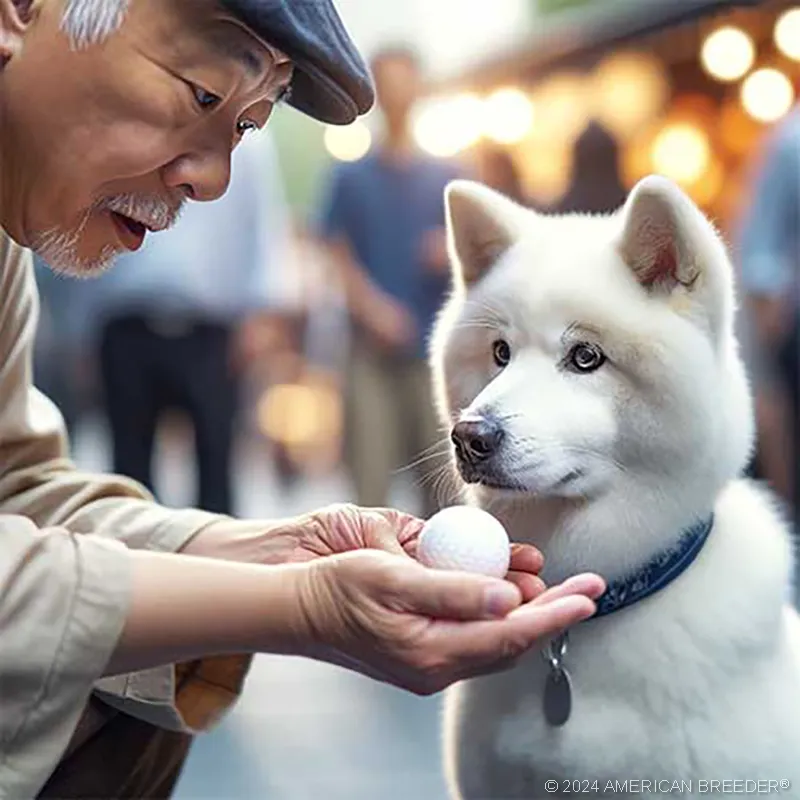 In the journey of life, the Kishu Ken becomes more than a pet—they become family. Their unwavering loyalty, intuitive understanding, and warm presence create a bond that transcends words. With every tail wag, every quiet moment shared, and every adventure embarked upon, the Kishu Ken cements their place as a cherished companion, forever leaving their pawprints on the heart.
In the journey of life, the Kishu Ken becomes more than a pet—they become family. Their unwavering loyalty, intuitive understanding, and warm presence create a bond that transcends words. With every tail wag, every quiet moment shared, and every adventure embarked upon, the Kishu Ken cements their place as a cherished companion, forever leaving their pawprints on the heart.
From the mountains of Japan to the hearts of enthusiasts worldwide, the Kishu Ken Dog's story is one of resilience, nobility, and the enduring connection between humans and canines. This guidebook serves as a tribute to their legacy, a beacon of knowledge that empowers readers to embrace every facet of this remarkable breed. Whether you're a seasoned Kishu Ken owner or a newcomer eager to learn, let this guide be your comprehensive companion on a journey of discovery, understanding, and appreciation for the captivating Kishu Ken Dog.
The Kishu Ken's well-being hinges on a foundation of proper health care. While they are generally robust dogs, genetic predispositions and breed-specific health concerns must be considered. Regular check-ups, vaccinations, and preventive care are essential for maintaining their vitality. Tailoring their diet to their nutritional needs ensures optimal health, while grooming routines keep their coat gleaming and skin healthy. The Kishu Ken's unique health profile calls for a responsible approach to their care, emphasizing early detection and proactive management of potential issues.
Socialization and Navigating Human Connections
The Kishu Ken's interaction with the world is a dance of caution and curiosity. Early and consistent socialization is key to shaping their responses to various stimuli. Introducing them to diverse environments, people, and other dogs helps mitigate any tendencies toward shyness or aggression. Their reserved nature toward strangers underscores the importance of gradual introductions and positive associations. Understanding their individual temperament and preferences lays the groundwork for nurturing positive social interactions throughout their lives.
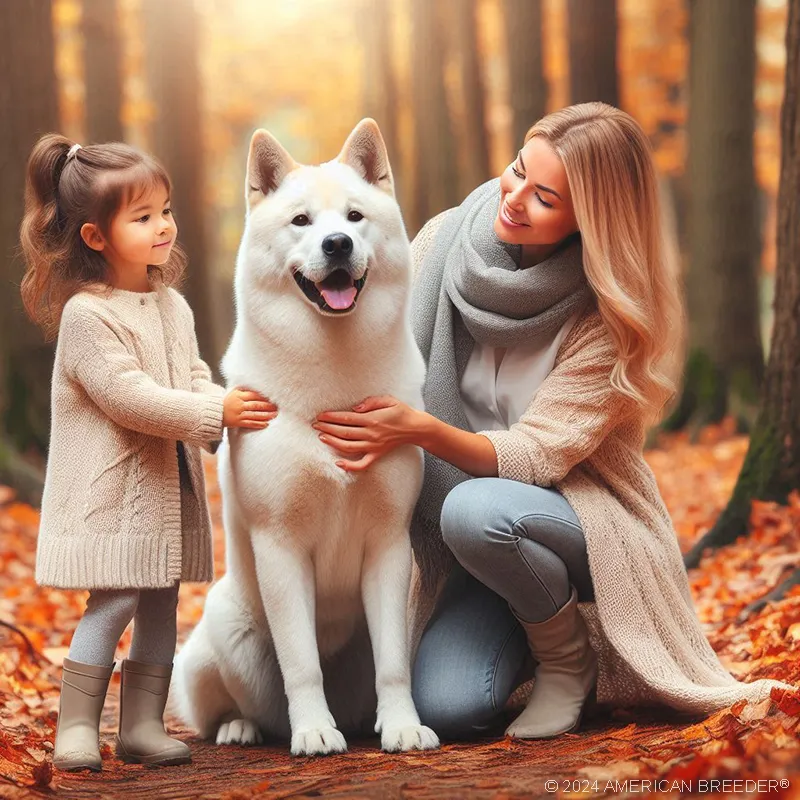 Crafting an Ideal Living Environment
Crafting an Ideal Living Environment
Matching the Kishu Ken's living environment to their unique needs ensures a harmonious coexistence. While they adapt well to various living situations, a home with a secure yard provides an outlet for their energy. Climate considerations, particularly extreme temperatures, call for precautions to keep them comfortable. Their intelligence thrives in an environment rich in mental stimulation, making interactive toys, puzzles, and training sessions indispensable tools for a well-rounded Kishu Ken.
Journey into the World of Training and Obedience
Training a Kishu Ken is a journey of mutual learning and respect. Their intelligence and independent spirit require a patient and consistent approach, founded on positive reinforcement techniques. Obedience training lays the groundwork for a well-behaved companion, while advanced training taps into their agility and problem-solving skills. Leash training, essential for managing their prey drive, demands a gentle yet firm approach. Navigating their unique training needs forms a bridge to a harmonious relationship built on trust and communication.
Engaging the Kishu Ken's Instinctual Nature
Embracing the Kishu Ken's innate instincts can yield rewarding experiences. Harnessing their hunting heritage through activities like tracking and scent work taps into their natural abilities. Engaging in canine sports such as agility and obedience trials not only provides physical exercise but also fosters mental stimulation. Enrichment games and puzzles are valuable tools to satisfy their curiosity and prevent boredom. Nurturing their instincts empowers them to thrive in environments that celebrate their innate talents.
 The Financial Aspects of Kishu Ken Ownership
The Financial Aspects of Kishu Ken Ownership
Welcoming a Kishu Ken into your home involves financial considerations beyond initial acquisition costs. Budgeting for regular expenses such as food, veterinary care, grooming, and training ensures their well-being is never compromised. Exploring pet insurance options safeguards against unexpected medical expenses, providing peace of mind. As responsible ownership encompasses both emotional and financial commitment, a clear understanding of the ongoing costs ensures a fulfilling and sustainable partnership.
Nurturing a Responsible and Ethical Legacy
Your role as a Kishu Ken owner extends beyond the boundaries of your home. Advocating for responsible ownership and ethical breeding practices elevates the breed's welfare on a broader scale. By supporting reputable breeders, sharing accurate information, and promoting proper care guidelines, you contribute to a brighter future for Kishu Kens everywhere. Your commitment to the breed echoes through generations, shaping their legacy with integrity and compassion.
Celebrating the Kishu Ken's Remarkable Journey
As we close the pages of this comprehensive guide, we honor the remarkable journey of the Kishu Ken Dog. From their ancient origins to their modern-day role as cherished companions, they have captivated hearts and left an indelible mark. Their legacy stands as a testament to their resilience, loyalty, and the enduring bond between humans and canines. Whether you're embarking on the adventure of Kishu Ken ownership or simply seeking to expand your understanding of this extraordinary breed, may this guide remain a beacon of knowledge and appreciation, illuminating every facet of the Kishu Ken's unique essence.
Kishu Ken Dog Quick Reference Guide
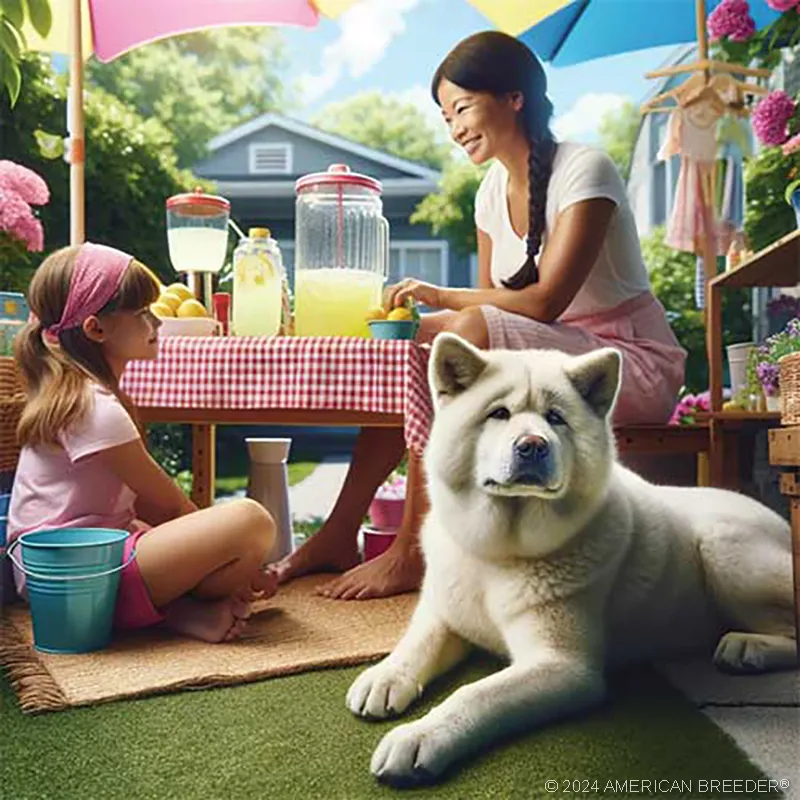 Breed Background: Origin: Japan | Breed Purpose: Hunting and Guarding | AKC Class: Non-Sporting | Year Recognized by AKC: 2021
Breed Background: Origin: Japan | Breed Purpose: Hunting and Guarding | AKC Class: Non-Sporting | Year Recognized by AKC: 2021
Appearance: Size: Medium | Weight: 30-60 pounds | Coat Type: Double coat, harsh outer and soft undercoat | Colors & Patterns: White, red, sesame | Distinctive Features: Triangular eyes, fox-like expression
Temperament: Energy Level: 3/5 | Loyalty: 5/5 | Friendliness to Pets: 3/5 | Friendliness to Strangers: 2/5 | Trainability: 3/5 | Playfulness: 3/5 | Frequent Barker: 2/5 | Chase Instincts: 4/5 | Sense of Smell: 4/5 | Drive to Hunt: 5/5
Health & Care: Health Issues: Hip dysplasia, allergies | Lifespan: 12-16 years | Grooming Difficulty: Moderate | Exercise Needs: Moderate to High
Socialization: Interaction with Children: Good with early socialization | Interaction with Pets: Moderate, socialization recommended | Interaction with Strangers: Reserved | Elderly Compatibility: Can be adaptable | Ease of Training: Moderate
Suitable Living Arrangements: Apartment: Possible with sufficient exercise | House: Yes | Rural Area: Yes | Yard Size Requirements: Medium to large yard preferred
Training & Obedience: Trainability: 3/5 | Intelligence: 4/5 | Obedience: 3/5 | Problem-Solving: 4/5 | Easily Stimulated: 3/5 | Focus Level: 3/5 | Easily Distracted: 3/5
Financial Planning: Typical Price Range: $800 - $1,500 | Initial Expenses: Puppy essentials, crate, vaccinations | Ongoing Annual Expenses: Food, grooming, vet visits
Breeding: Reproductive Maturity: 8-12 months | Litter Frequency: 1-2 litters per year | Litter Size: 4-8 puppies | Stud Cost: Varies | Breeding Challenges: Independent nature may require patience
Did You Enjoy this Article? Share it and Help Us Spread the Word!
If you found this article helpful, we'd appreciate it if you could share it with your friends or link to it from your website, blog, or group! You can also use the convenient social share tabs on the left side of the screen to instantly share this page to your social media feed. For more ways to support and promote the American Breeder Community, visit our Share & Promote Together page for social media posts and memes you can copy and share. Your support means the world to us!
Disclaimer: The information provided in this article is for general informational purposes only and does not constitute legal, medical, financial, or professional advice. While we strive for accuracy, we make no representations or warranties regarding the completeness, accuracy, reliability, or suitability of the information. Please consult with a professional before making decisions based on the content provided. American Breeder Inc. assumes no responsibility for any errors or omissions or for the results obtained from the use of this information.


